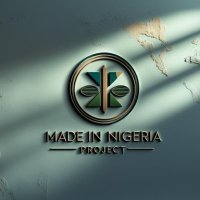
MADE IN NIGERIA PROJECT: Boosting Local Production and Economic Growth
Introduction
The "Made in Nigeria" initiative is a government-backed and private sector-driven campaign aimed at promoting locally manufactured goods reducing import dependency and strengthening Nigeria’s economy. With a population of over 200 million people Nigeria has immense potential to become a self-sufficient industrial hub in Africa.
This blog explores the importance of the Made in Nigeria Project its benefits challenges and how Nigerians can support local industries for sustainable economic growth.
Why the Made in Nigeria Project Matters
1. Economic Diversification
Nigeria has long relied on oil exports making its economy vulnerable to global price fluctuations. By promoting local production in sectors like agriculture textiles technology and manufacturing Nigeria can diversify its economy and create more stable revenue streams.
2. Job Creation
Local production opens up employment opportunities across various industries reducing unemployment and underemployment. Small and medium-sized enterprises (SMEs) are the backbone of this initiative providing jobs for millions.
3. Reduction in Foreign Exchange Pressure
Nigeria spends billions of dollars annually on imported goods—from rice to electronics. Encouraging local production reduces the demand for foreign exchange stabilizes the Naira and strengthens Nigeria’s economic independence.
4. Improved Quality & Standards
With increased investment in local industries Nigerian products can compete globally in terms of quality and innovation. Brands like Dangote Cement Innoson Vehicles and Arike Shoes have shown that Nigerian-made goods can meet international standards.
5. National Pride & Identity
Supporting locally made goods fosters a sense of patriotism and national identity. When Nigerians choose "Made in Nigeria" products they contribute to the country’s growth and global reputation
Event Venue & Nearby Stays
Federal Capital Territory, Federal Capital Territory, Nigeria, Abuja












